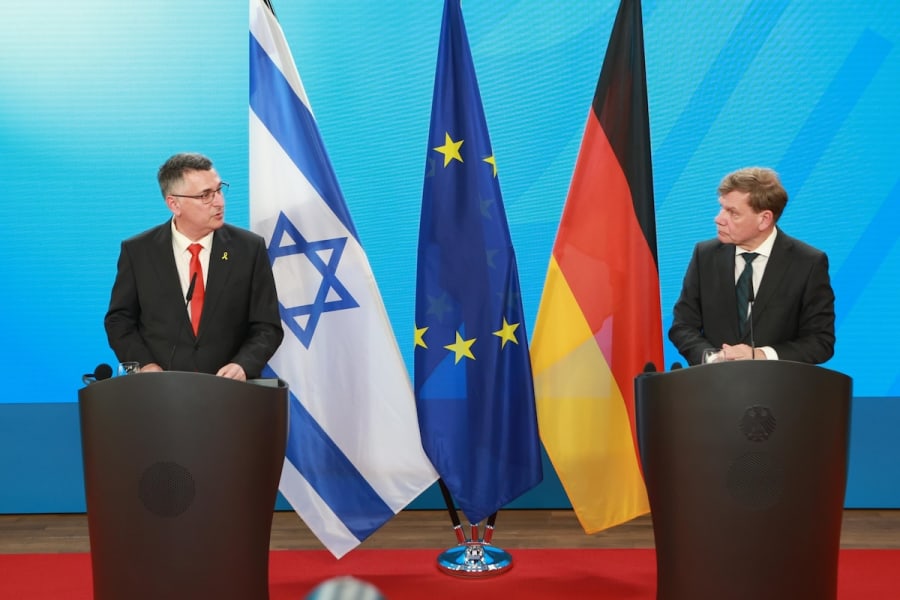Germany pledges continued arms deliveries to Israel despite criticism of Gaza War

German Foreign Minister Johann Wadephul criticized the ongoing Gaza War during a meeting with his Israeli counterpart, Gideon Sa’ar, in Berlin on Thursday. He reiterated his “urgent request” for unrestricted humanitarian aid to Gaza, emphasizing that such efforts must align with international law.
Wadephul also stressed that Berlin “rejects” the establishment of new Israeli communities in the disputed Judea and Samaria region, internationally known as the West Bank.
Israeli Defense Minister Israel Katz and Finance Minister Bezalel Smotrich announced last week that Israel intends to construct 22 new Israeli communities in the contested area to boost Israel’s security and prevent the unilateral establishment of “Palestine,” which the top government views as a threat to Israel's security.
While Wadephul criticized Israeli policies in Gaza and the Palestinian Territories, he affirmed that Germany would continue delivering weapons systems for the Israeli military to defend itself against multiple threats.
Sa’ar thanked Germany for supporting Israel but warned that international pressure on the Jewish state will only prolong the war against Hamas in Gaza by strengthening the terror group that openly calls for Israel’s destruction.
“Pressure on Israel, attacks, statements, and decisions against Israel, threatening Israel with sanctions, as some other European countries are doing; not only will it not help this effort [to end the war]: It will cause Hamas to harden its stance,” the Israeli foreign minister stated.
In response to the criticism, Sa’ar defended the new Israeli-American aid mechanism, describing it as more efficient and designed to bypass Hamas.
“We are maintaining both humanitarian channels in order to address the situation,” he said, arguing that the previous system allowed Hamas to exploit aid for its war effort.
“Frankly, this method has unfortunately enabled Hamas to empower itself over the civilian population. The aid became an economic source for Hamas, fueling its war machine.”
Sa’ar explained that the new approach would help shorten the war by accelerating Hamas’ collapse.
“We believe that expanding it [the new aid program] will help shorten the war,” he said. “It will hurt Hamas’s economy. It will hurt its stronghold over the people of Gaza.”
Germany is one of Israel’s strongest allies in the European Union, however, the German government has increasingly been pressured to respond to criticism about the rising Palestinian death toll in Gaza.
Last month, the German Chancellor Friedrich Merz argued that Israeli military operations against Hamas could no longer be justified.
"Harming the civilian population to such an extent, as has increasingly been the case in recent days, can no longer be justified as a fight against Hamas terrorism," Merz stated. The German official, like other Western leaders, did not address claims that Hamas contributes to casualties by targeting Israeli civilians and operating within densely populated areas in Gaza.
Domestic dynamics within German society are increasingly influencing Berlin’s evolving stance on Israel’s military actions in the Middle East and have led to antisemitic incidents.
A recent report showed that antisemitic incidents in Germany rose by 77% in 2024 compared to the previous year, with 67% of the cases linked to Israel-related contexts. The surge has been largely driven by individuals from radical Islamist circles and elements of the far left, reflecting broader trends seen across several Western societies.

The All Israel News Staff is a team of journalists in Israel.
You might also like to read this:
















